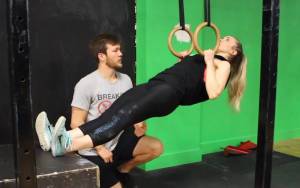Emotional Intelligence as a Success Marker for Fitness Training
 Training people for fitness, nutrition, health and wellness requires emotional intelligence. Successful personal trainers abound in EI.
Training people for fitness, nutrition, health and wellness requires emotional intelligence. Successful personal trainers abound in EI.
The pandemic taught us an important lesson: everyone has an opinion, and people in the fitness industry seem to have a lot more than most business people. And it wasn't really much fun to watch because I don't really need a personality dump from a trainer or coach, just training and coaching.
Continue reading

